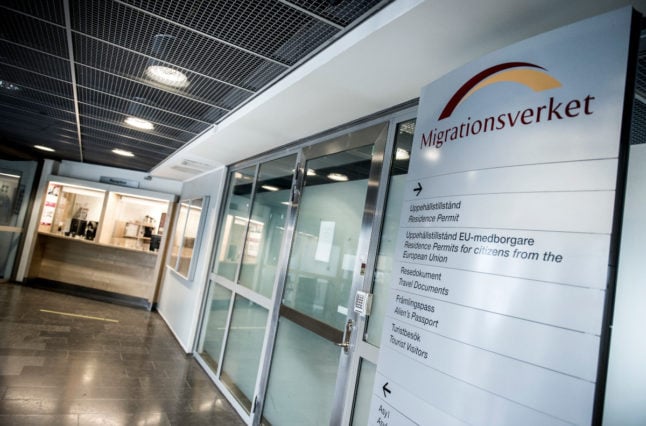“The main idea behind the [Tidö] agreement is that we should convert permanent residency to citizenship,” Maria Malmer Stenergard, from the right-wing Moderate Party, told the Svenska Dagbladet newspaper.”You should not be here forever on a permanent residence permit. A clear path to citizenship is needed.”
I envision that you will receive individual plans for how to achieve this,” she continued. “Learn the language, earn a living, and have knowledge of Swedish society, so that you can fully become a Swedish citizen.”
Malmer Stenergard said it was still unclear whether a planned government inquiry into the possibility of “converting…existing permanent residence permits” would also open the way for those who have been given a permanent right to live in the country to be downgraded to a temporary residency permit.
“We’ll have to look at that,” she said. “There is a problem with positive administrative decisions and changing them, which the Migration Agency’s director general Mikael Ribbenvik has been aware of. We also state in the Tidö Agreement that basic principles of administrative law shall continue to apply.”
READ ALSO: What do we know about Sweden’s plans to withdraw permanent residency?
In the Tidö Agreement, the deal between the far-right Sweden Democrats and the three government parties, it says that “asylum-related residence permits should be temporary and the institution of permanent residence permits should be phased out to be replaced by a new system based on the immigrant’s protection status”.
It further states that “an inquiry will look into the circumstances under which existing permanent residence permits can be converted, for example through giving affected permit holders realistic possibilities to gain citizenship before a specified deadline. These changes should occur within the framework of basic legal principles.”
Malmer Stenergard stressed that the government would only retroactively reverse an administrative decision (over residency) if a way can be found to make such a move compatible with such principles.
“This is why we state in the Tidö Agreement that basic principles of administrative law must apply,” she said.
She said the government had not yet come to a conclusion on what should happen to those with permanent residency who either cannot or are unwilling to become Swedish citizens.
“We’re not there yet, but of course we’re not going to be satisfied with people just having an existing permanent residency, which in many cases has been granted without any particularly clear demands, if they don’t then take the further steps required for citizenship.”
This did not mean, however, that those with permanent residency permits should be worried, she stressed.
“If your ambition is to take yourself into Swedish society, learn the language, become self-supporting, and live according to our norms and values, I think that there’s a very good chance that you will be awarded citizenship.”
She said that even if people couldn’t meet the requirements for citizenship, everyone with permanent residency should at least have “an individual plan for how they are going to become citizens”, if they want to stay in Sweden.
When it comes to other asylum seekers, however, she said that the government’s aim was for residencies to be recalled more often.
“We want to find a way to let the Migration Agency regularly reassess whether the grounds for residency remain. The aim is that more residencies should be recalled, for example, if a person who is invoking a need of asylum or other protection then goes back to their home country for a holiday.”



 Please whitelist us to continue reading.
Please whitelist us to continue reading.
Member comments